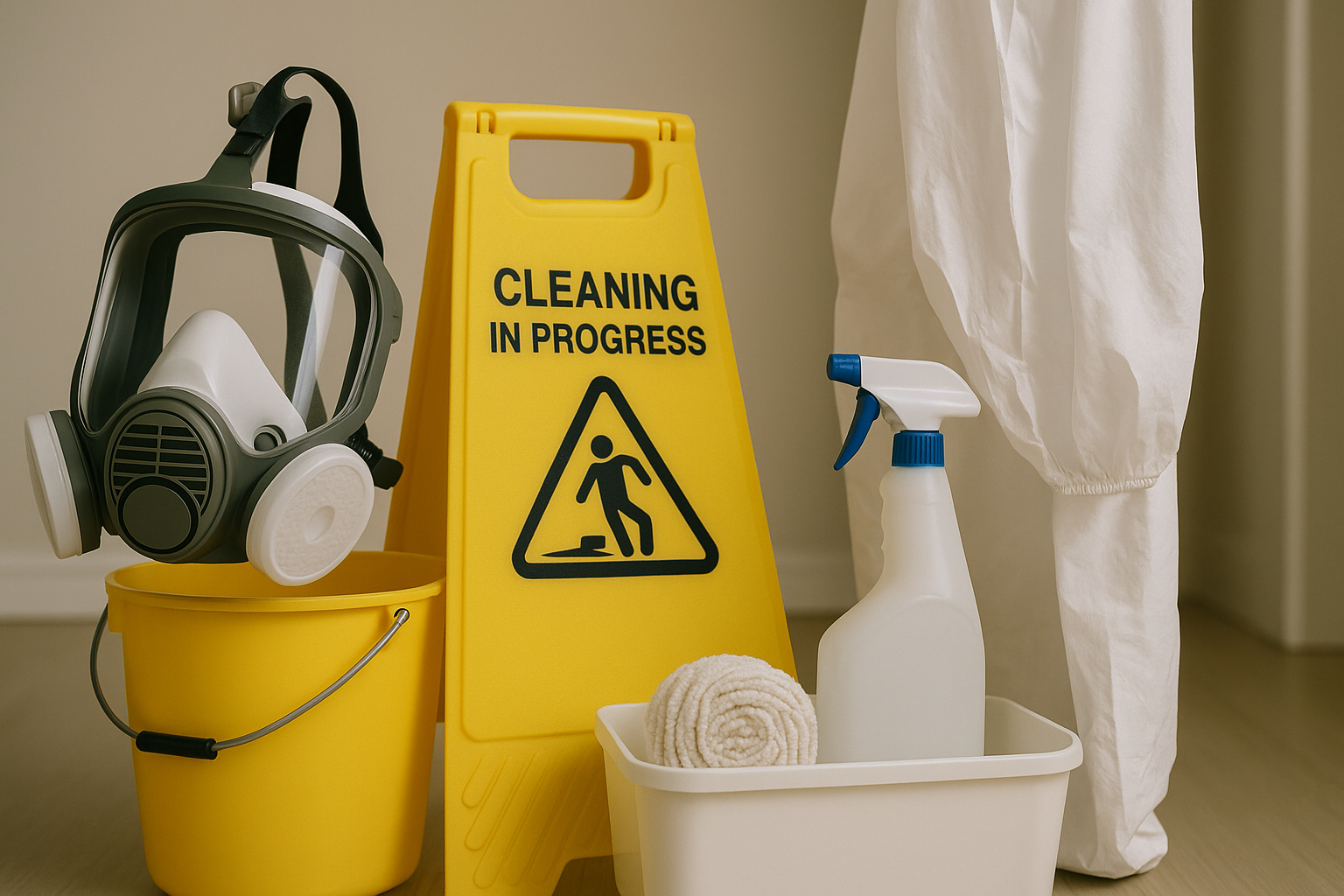Forensic cleaning isn’t just about removing stains or unpleasant odors. It’s a critical process used to restore safety and dignity to spaces that have been exposed to trauma, death, or hazardous materials. Despite its name, it’s not only used in crime scenes. It’s a highly specialized form of cleaning that deals with situations most people never imagine they’ll face.
If you’ve heard the term but aren’t quite sure what it means or whether you need it, this guide breaks it down clearly.
What Is Forensic Cleaning?
Forensic cleaning is the process of thoroughly cleaning, sanitizing, and restoring a space after a traumatic or hazardous event. It goes beyond traditional cleaning by targeting biological contaminants like blood, bodily fluids, tissue, and other biohazards that may pose a health risk.
This type of cleaning follows strict safety protocols to ensure the area is safe for re-entry. It’s most often handled by trained professionals with personal protective equipment, specialized cleaning agents, and access to proper waste disposal channels.
What Makes It “Forensic”?
The term “forensic” refers to anything related to investigation or evidence. In this case, forensic cleaning often follows police investigations, coroners’ visits, or health department assessments. The cleaning process does not interfere with the investigative process but begins after authorities have finished collecting evidence.
What sets forensic cleaning apart is the level of care, compliance, and documentation involved. Technicians work under health and safety regulations, often guided by OSHA, EPA, and local environmental health laws.
When Do You Need Forensic Cleaning?
You may need forensic cleaning in any situation where a space has been contaminated with biological or hazardous materials. Common examples include:
-
Crime scenes involving blood or bodily fluids
-
Suicides or attempted suicides
-
Unattended deaths where decomposition has begun
-
Accidental deaths or traumatic injuries in the home or workplace
-
Industrial accidents with exposure to chemicals or blood
-
Hoarding situations involving biological contamination
-
Infectious disease outbreaks like COVID-19 or other communicable illnesses
Even if the event is not a crime, forensic-level cleaning may still be necessary to ensure proper sanitation, odor removal, and public health safety.
What Does the Process Involve?
A forensic cleaning service typically includes the following steps:
-
Initial assessment to identify risks and plan the cleanup
-
Securing the area to contain contaminants
-
Removal of contaminated materials, such as furniture, flooring, drywall, or personal items
-
Deep cleaning and disinfecting of all affected surfaces using medical-grade solutions
-
Odor neutralization to remove lingering smells from decomposition or chemicals
-
Safe disposal of biohazardous waste in accordance with local laws
-
Final inspection to ensure the area is safe for use
Some companies also offer emotional support resources or partner with grief counselors to help families through the process.
Who Performs Forensic Cleaning?
Forensic cleaning should only be performed by trained and certified professionals. These technicians often hold certifications in biohazard remediation, trauma cleanup, or hazardous waste handling.
Look for companies that are:
-
Licensed and insured
-
OSHA-compliant
-
Experienced with trauma and biohazard situations
-
Discreet and compassionate
-
Available for emergency response (24/7)
Avoid hiring general cleaners or restoration companies without the right credentials, as they may not follow proper health protocols.
Is It Covered by Insurance?
In many cases, yes. Homeowners or renters insurance often includes coverage for biohazard and forensic cleaning, especially in the case of an unattended death, suicide, or covered accident. The cost can range from a few thousand dollars to more than $10,000 depending on the severity of the contamination.
Check your policy and ask your cleanup provider if they will work directly with your insurance company. Many will help you file your claim and manage documentation.
Why It Matters
Beyond the technical work, forensic cleaning plays a critical role in emotional recovery. Spaces that carry reminders of trauma can become triggers for anxiety, grief, or PTSD. Professional cleaning removes those physical reminders, helping families begin the healing process.
It also protects future occupants. Landlords, property managers, and realtors rely on forensic cleaning to ensure rental units or homes are truly safe for the next person.
Final Thoughts
Forensic cleaning isn’t just a specialty—it’s a public health service and a compassionate response to tragedy. Whether you’re managing a crisis in your home, helping a tenant, or supporting a loved one, knowing when and why to call in professional help can make all the difference.
If you’re unsure whether your situation requires forensic cleaning, it’s always best to consult a certified provider. A quick call can help you assess your needs and avoid putting yourself or others at risk.
If you have feedback, questions, or ideas for future articles or Information Hubs, please contact us. Your insights help us create valuable content.


